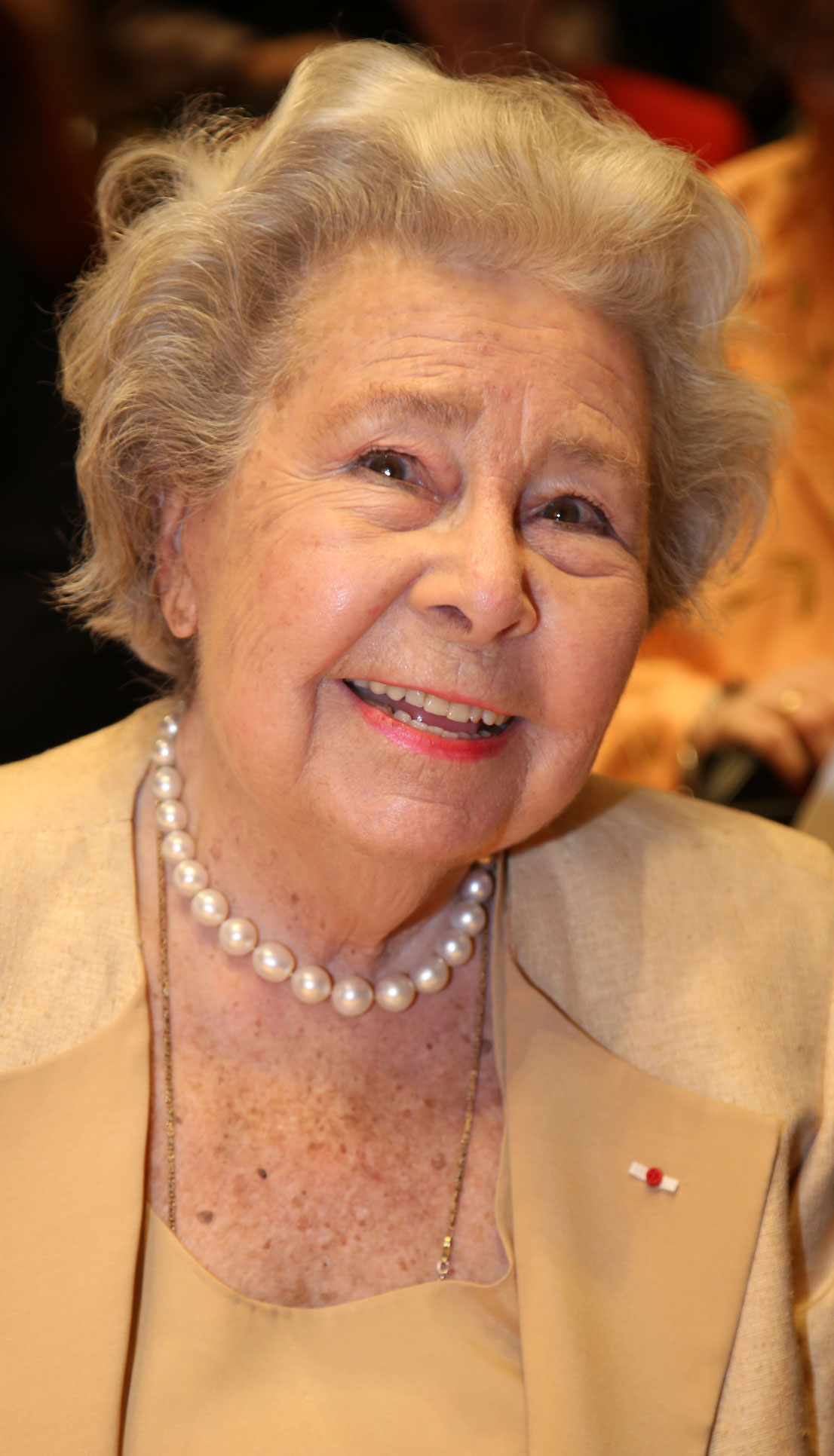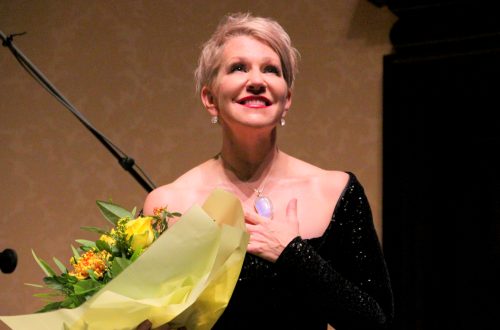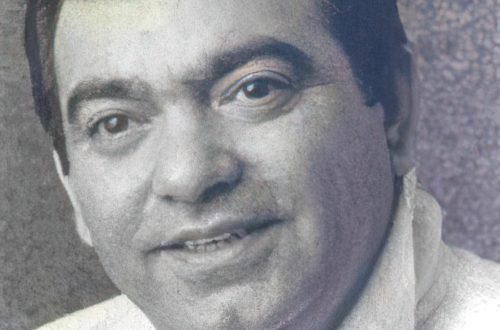
Christa Ludwig |
Christa Ludwig
Ludwig is one of the brightest and most versatile singers of the last century. “When you communicate with Krista,” writes one of the foreign critics, “this soft, elegant woman, always dressed in the latest fashion and with amazing taste, who immediately disposes of her benevolence and warmth of the heart, you cannot understand where, in what hiding places her this latent drama of the artistic vision of the world is hidden in the heart, allowing her to hear aching sorrow in the serene Schubert barcarolle, to turn the seemingly bright elegiac Brahms song “Your Eyes” into a monologue stunning in its expressiveness, or to convey all the despair and heartache of Mahler’s song “Earthly Life “.
Christa Ludwig was born in Berlin on March 16, 1928 into an artistic family. Her father Anton sang at the opera houses of Zurich, Breslau and Munich. Christa’s mother, Eugenia Besalla-Ludwig, began her career as a mezzo-soprano. Later, she performed as a dramatic soprano on the stages of many European theaters.
“… My mother, Evgenia Bezalla, sang Fidelio and Elektra, and as a child I admired them. Later, I said to myself: “One day I would sing Fidelio and die,” recalls Ludwig. – Then it seemed incredible to me, since at the beginning of my career I had, unfortunately, not a soprano, but a mezzo-soprano and there was no upper register at all. It took a long time before I dared to take on dramatic soprano roles. This happened in 1961-1962, after 16-17 years on the stage …
… From the age of four or five, I was almost constantly present at all the lessons that my mother gave. With me, I often went through with the students any part or fragments from several roles. When the students finished classes, I began to repeat – to sing and play everything that I remembered.
Then I began to visit the theater, where my father had his own box, so that I could see the performances when I wanted. As a girl, I knew many parts by heart and often acted as a kind of “house critic”. She could, for example, tell her mother that in such and such an episode she mixed up the words, and her father that the choir sang out of tune or the lighting was insufficient.
The girl’s musical abilities manifested themselves early: already at the age of six she already quite clearly deduced complex passages, often sang duets with her mother. For a long time, her mother remained Christa’s only vocal teacher, and she never received an academic education. “I didn’t have the opportunity to study at the conservatory,” the singer recalls. – At a time when many artists of my generation studied music in classes, in order to earn a living, I started performing at the age of 17, first on the concert stage, and then in the opera – fortunately, they found a very good voice in me , and I sang everything that was offered to me – any role, if it had at least one or two lines.
In the winter of 1945/46 Christa made her debut in small concerts in the city of Giessen. Having achieved her first success, she goes to an audition at the Frankfurt am Main Opera House. In September 1946, Ludwig became the soloist of this theatre. Her first role was Orlovsky in Johann Strauss’ operetta Die Fledermaus. For six years Krista sang in Frankfurt almost exclusively bit parts. Cause? The young singer could not take high notes with sufficient confidence: “My voice went up slowly – every six months I added half a tone. If even at the Vienna Opera at first I did not have a few notes in the upper register, then you can imagine what my tops were in Frankfurt!
But hard work and perseverance did their job. In the opera houses of Darmstadt (1952-1954) and Hannover (1954-1955), in just three seasons she sang the central parts – Carmen, Eboli in Don Carlos, Amneris, Rosina, Cinderella, Dorabella in Mozart’s “That’s the Way All Women Do”. She performed five Wagnerian roles at once – Ortrud, Waltraut, Frikk in Valkyrie, Venus in Tannhäuser and Kundry in Parsifal. So Ludwig confidently became one of the most gifted young singers of the German opera scene.
In the autumn of 1955, the singer made her debut on the stage of the Vienna State Opera in the role of Cherubino (“The Marriage of Figaro”). V.V. Timokhin writes: “In the same year, the opera was recorded on records with the participation of Krista Ludwig (conducted by Karl Böhm), and this first recording of the young singer gives an idea of the sound of her voice at that time. Ludwig-Cherubino is an amazing creation in its charm, spontaneity, some kind of youthful enthusiasm of feeling. The artist’s voice is very beautiful in timbre, but it still sounds a bit “thin”, in any case, less bright and rich than, for example, in later recordings. On the other hand, he is ideally suited to the role of Mozart’s young man in love and perfectly conveys that heartfelt trembling and tenderness with which Cherubino’s two famous arias are full. For a number of years, the image of Cherubino performed by Ludwig adorned the Viennese Mozart Ensemble. The singer’s partners in this performance were Elisabeth Schwarzkopf, Irmgard Seefried, Sena Yurinac, Erich Kunz. Often the opera was conducted by Herbert Karajan, who knew Krista well since childhood. The fact is that at one time he was the chief conductor of the City Opera House in Aachen and in a number of performances – Fidelio, The Flying Dutchman – Ludwig sang under his direction.
The first great successes of the singer in the largest European and American opera houses are associated with the parts of Cherubino, Dorabella and Octavian. She performs in these roles at La Scala (1960), the Chicago Lyric Theater (1959/60), and the Metropolitan Opera (1959).
V.V. Timokhin notes: “Krista Ludwig’s path to the heights of artistic mastery was not marked by unexpected ups and downs. With each new role, sometimes imperceptibly to the general public, the singer took new artistic frontiers for herself, enriched her creative palette. With all evidence, the Viennese audience, perhaps, realized what kind of artist Ludwig had grown into, during the concert performance of Wagner’s opera “Rienzi” during the 1960 music festival. This early Wagnerian opera is not performed anywhere nowadays, and among the performers were the famous singers Seth Swangholm and Paul Scheffler. Conducted by Josef Kripe. But the heroine of the evening was Christa Ludwig, who was entrusted with the role of Adriano. The record preserved this wonderful performance. The artist’s inner fire, ardor and power of imagination are felt in every phrase, and Ludwig’s voice itself conquers with richness, warmth and velvety softness of tone. After Adriano’s great aria, the hall gave the young singer a thunderous ovation. It was an image in which the outlines of her mature stage creations were guessed. Three years later, Ludwig was awarded the highest artistic distinction in Austria – the title of “Kammersangerin”.
Ludwig gained world fame primarily as a Wagnerian singer. It is impossible not to be captivated by her Venus in Tannhäuser. The heroine of Krista is full of soft femininity and reverent lyricism. At the same time, Venus is characterized by great willpower, energy and authority.
In many ways, another image echoes the image of Venus – Kundry in Parsifal, especially in the scene of the seduction of Parsifal in the second act.
“It was a time when Karajan divided all kinds of parts into parts, which were performed by different singers. So it was, for example, in the Song of the Earth. And it was the same with Kundry. Elizabeth Hengen was Kundry the savage and Kundry in the third act, and I was the “temptress” in the second act. There was nothing good about it, of course. I had absolutely no idea where Kundry came from and who she was. But after that, I played the whole role. It was also one of my last roles – with John Vickers. His Parsifal was one of the strongest impressions in my stage life.
At first, when Vickers appeared on stage, he personified a motionless figure, and when he began to sing: “Amortas, die Wunde”, I just sobbed, it was so strong.”
Since the beginning of the 60s, the singer has periodically turned to the role of Leonora in Beethoven’s Fidelio, which became the artist’s first experience in mastering the soprano repertoire. Both listeners and critics were struck by the sound of her voice in the upper register – juicy, sonorous, bright.
“Fidelio was a ‘difficult child’ for me,” says Ludwig. – I remember this performance in Salzburg, I was so worried then that the Viennese critic Franz Endler wrote: “We wish her and all of us quieter evenings.” Then I thought: “He is right, I will never sing this again.” One day, three years later, when I was in New York, Birgit Nilsson broke her arm and couldn’t sing Elektra. And since it was not customary then to cancel performances, director Rudolf Bing had to come up with something urgently. I got a call: “Can’t you sing Fidelio tomorrow?” I felt that I was in my voice, and I dared – I had absolutely no time to worry. But Bem was terribly worried. Fortunately, everything went very well, and with a clear conscience I “surrendered” this role.
It seemed that a new field of artistic activity was opening before the singer. However, there was no continuation, as Ludwig was afraid to lose the natural timbre qualities of her voice.
The images created by Ludwig in the operas of Richard Strauss are widely known: the Dyer in the fairy tale opera The Woman Without a Shadow, the Composer in Ariadne auf Naxos, the Marshall in The Cavalier of the Roses. After playing this role in 1968 in Vienna, the press wrote: “Ludwig the Marshall is a true revelation of the performance. She created an amazingly human, feminine, full of charm, grace and nobility character. Her Marshall is sometimes capricious, sometimes thoughtful and sad, but nowhere does the singer fall into sentimentality. It was life itself and poetry, and when she was alone on the stage, as in the finale of the first act, then together with Bernstein they worked wonders. Perhaps, in all its brilliant history in Vienna, this music has never sounded so lofty and soulful.” The singer performed the Marshall with great success at the Metropolitan Opera (1969), at the Salzburg Festival (1969), at the San Francisco Opera House (1971), at the Chicago Lyric Theater (1973), at the Grand Opera (1976 / 77).
Quite often, Ludwig performed on the opera stage and on the concert stage in many countries of the world with her husband, Walter Berry. Ludwig married the Vienna Opera soloist in 1957 and they lived together for thirteen years. But joint performances did not bring them satisfaction. Ludwig recalls: “… he was nervous, I was nervous, we annoyed each other very much. He had healthier ligaments, he could sing all the time, laugh, talk and drink in the evenings – and he never lost his voice. While it was enough for me to turn my nose towards the door somewhere – and I was already hoarse. And when he coped with his excitement, calmed down – I was even more worried! But that was not the reason we broke up. We developed not so much together as apart from each other.”
At the start of her artistic career, Ludwig practically did not sing in concerts. Later, she did it more and more willingly. In an interview in the early 70s, the artist said: “I try to divide my time between the opera stage and the concert hall approximately equally. Moreover, in recent years I have performed at the opera a little less often and give more concerts. This happens because for me to sing Carmen or Amneris for the hundredth time is an artistically less interesting task than preparing a new solo program or meeting a talented conductor on the concert stage.
Ludwig reigned on the world opera stage until the mid-90s. One of the most outstanding chamber singers of our time has performed with great success in London, Paris, Milan, Hamburg, Copenhagen, Budapest, Lucerne, Athens, Stockholm, The Hague, New York, Chicago, Los Angeles, Cleveland, New Orleans. She gave her last concert in 1994.





